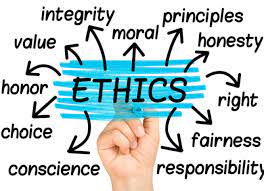R. G. Wilkinson & K. E. Pickett
Nature.com
Originally published 12 March 24
Here is an excerpt:
Inequality also increases consumerism. Perceived links between wealth and self-worth drive people to buy goods associated with high social status and thus enhance how they appear to others — as US economist Thorstein Veblen set out more than a century ago in his book The Theory of the Leisure Class (1899). Studies show that people who live in more-unequal societies spend more on status goods14.
Our work has shown that the amount spent on advertising as a proportion of gross domestic product is higher in countries with greater inequality. The well-publicized lifestyles of the rich promote standards and ways of living that others seek to emulate, triggering cascades of expenditure for holiday homes, swimming pools, travel, clothes and expensive cars.
Oxfam reports that, on average, each of the richest 1% of people in the world produces 100 times the emissions of the average person in the poorest half of the world’s population15. That is the scale of the injustice. As poorer countries raise their material standards, the rich will have to lower theirs.
Inequality also makes it harder to implement environmental policies. Changes are resisted if people feel that the burden is not being shared fairly. For example, in 2018, the gilets jaunes (yellow vests) protests erupted across France in response to President Emmanuel Macron’s attempt to implement an ‘eco-tax’ on fuel by adding a few percentage points to pump prices. The proposed tax was seen widely as unfair — particularly for the rural poor, for whom diesel and petrol are necessities. By 2019, the government had dropped the idea. Similarly, Brazilian truck drivers protested against rises in fuel tax in 2018, disrupting roads and supply chains.
Do unequal societies perform worse when it comes to the environment, then? Yes. For rich, developed countries for which data were available, we found a strong correlation between levels of equality and a score on an index we created of performance in five environmental areas: air pollution; recycling of waste materials; the carbon emissions of the rich; progress towards the United Nations Sustainable Development Goals; and international cooperation (UN treaties ratified and avoidance of unilateral coercive measures).
The article argues that rising economic inequality is a major threat to the world's well-being. Here are the key points:
The rich are capturing a growing share of wealth: The richest 1% are accumulating wealth much faster than everyone else, and their lifestyles contribute heavily to environmental damage.
Inequality harms everyone: High levels of inequality are linked to social problems like crime, mental health issues, and lower social mobility. It also makes it harder to address environmental challenges because people resist policies seen as unfair.
More equal societies perform better: Countries with a more even distribution of wealth tend to have better social and health outcomes, as well as stronger environmental performance.
Policymakers need to take action: The article proposes progressive taxation, closing tax havens, and encouraging more equitable business practices like employee ownership.
The overall message is that reducing inequality is essential for solving a range of environmental, social, and health problems.












